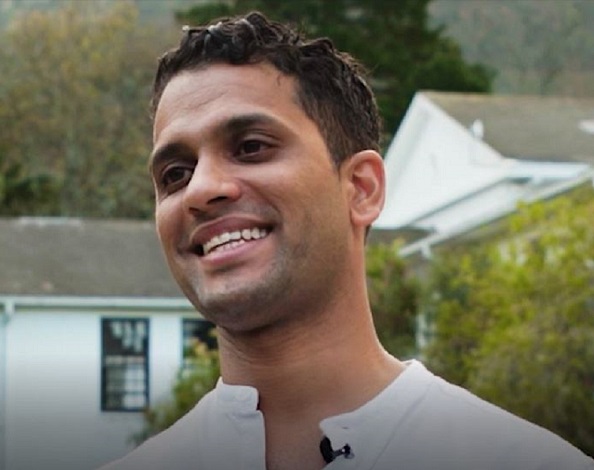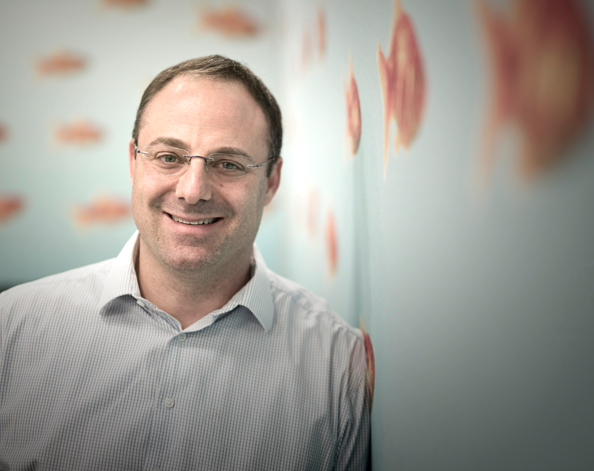Receive Focus insights straight to your inbox
The relentless pace of technological innovation is transforming the way we work and live. Developments in artificial intelligence (AI), machine learning, automation and robotics pose a real threat to human jobs, but it isn't just menial and repetitive trades that are at risk.
The ability to compute billions of data points in seconds, without the veil and influence of human emotion, will supplant professions like diagnostic medicine, accounting and actuarial science.
Thankfully, though, the technologies that characterise the Fourth Industrial Revolution, also known as Industry 4.0, will do more than simply replace existing jobs. They will also create new career opportunities and forever reshape the context of work in our lives.
WATCH VIDEO: The robots are coming, but it's ok
New career paths will emerge
The question that plagues parents and teachers is: How can learners and scholars today prepare for such an increasingly uncertain future? What we know for sure is that to participate in the digitalised workplace of tomorrow, today's youth will require a new set of skills and a vastly different approach to education.
To help elucidate the dynamics at play and contextualise the skills that the younger generation requires to function in the future workplace, Investec sponsored an event at the South African College School (SACS), featuring Sameer Rawjee as a keynote speaker.
"We're effectively trying to prepare our children for a new world of work where traditional careers may no longer exist and new, previously unimagined options will emerge."
Rawjee is the founder of the Life Design Lab at Google and the current CEO of O School, which helps companies design their organisation for the evolving workplace. He also helps South African schools adopt the Mars curriculum, an education programme that aligns with technology education standards and aims to prepare students for the future of work.
Rawjee explained to pupils, parents and teachers at the event that the impact of AI and other Industry 4.0 technologies would result in the reshaping of traditional career options for today's youth.
"We're effectively trying to prepare our children for a new world of work where traditional careers may no longer exist and new, previously unimagined options will emerge. It's a world about which we have no knowledge or experience, which is enough to make anyone anxious. But I am also hopeful that this uncertainty excites us, at least a little, for the many possibilities and opportunities it holds."
READ MORE: Rocking the gig economy
WATCH VIDEO: How to prepare your children for a digital future
Our children's ability to exploit these opportunities and thrive in a future technology-dominated world will depend on the skills and abilities we empower them with today. It is, therefore, pertinent to ask: Is our current formal education system, which is predicated on a predetermined set of outcomes, sufficient to prepare them for this future?
How can schools future-proof kids?
Rawjee believes that the basic subjects of maths, science and biology will remain relevant. "These are building blocks of knowledge. Children need this foundation to apply their acquired knowledge. If we are always focused on the leaf of knowledge, we don't know which branch it came from and we won't know anything about the source of that knowledge – the trunk from which it extends or the soil from where it began.
"We need to understand the entire ecosystem of first-principle thinking to know where knowledge came from and what it means. As such, there is still immense value in this kind of education, but is it enough?"
"If we are always focused on the leaf of knowledge, we don't know which branch it came from and we won't know anything about the source of that knowledge."
According to Rawjee, the obvious answer is 'no'. "We also need to think about how we connect this knowledge, which is why some schools are introducing the STEAM syllabus – science, technology, engineering, the arts and mathematics. This is based on the idea that technology is just a tool that humans apply.
"However, you can only learn about humans through the arts and humanities. By adding the arts to our curricula, we are, in a sense, connecting all of these topics to determine how best to apply technology and layer this approach with new ideas."
In this context, it's worth questioning whether a loss of jobs and traditional career paths deserves such concern, because our current concept and understanding of work is an archaic social construct that emerged during the First Industrial Revolution.
READ MORE: Sameer Rawjee and GIBS' Nick Binedell on the classroom of the future

We need to understand that there is no specific career for which a child can prepare. We can only impart the skills needed to envisage and create different careers – what I call 'career prototyping'.
Career prototyping
"We need to understand that there is no specific career for which a child can prepare. We can only impart the skills needed to envisage and create different careers – what I call 'career prototyping'," explained Rawjee.
This requires a focus on a concept he refers to as systems thinking. "It's basically an understanding that the world is just a series of systems. When we understand that every subject is connected to every other topic within a bigger system, we can begin to organise information and deliver it in a school format that helps to connect the dots through systems thinking."
This is an essential skill required to function in an augmented world, where man increasingly works with machine, rather than being disintermediated by technology. This collaboration between machines and humans will enhance workplace efficiency. It will also will free human resources from mundane and menial work to focus on areas that can add value to the business and redirect human intellect to work on tasks from which we can derive greater meaning and purpose.
This collaboration between machines and humans will enhance workplace efficiency. It will also free human resources from mundane and menial work.
"This new workplace paradigm will fulfil the promise of work, giving humans the ability to be creative, express their ideas and spend their time building solutions that will move the world forward. Technology will help us achieve this dream because all of the so-called grunt work will happen in the background by AI, which is truly exciting," said Rawjee.
Marc Kahn, global head of Organisational Development and Human Resources at Investec, echoes these sentiments, saying: "Instead of thinking about a career in a particular craft that you have for 30 years, you need to think about being multiskilled, independent and massively flexible in as many different working environments as possible.
"So, you think about yourself on a horizontal axis of capabilities rather than a vertical axis of specialisation. You need some specialisation, but the idea of being multiskilled and being able to work independently in different environments will be the differentiator for those who are more successful in the future."

Instead of thinking about a career in a particular craft that you have for 30 years, you need to think about being multiskilled, independent and massively flexible.
Focus on what makes us uniquely human
However, carving out man's new niche in this technology-dominated world will require a focus on developing the human faculties that intelligent machines and robots can't mimic or acquire, according to Rawjee.
"We need to think about those attributes that make us human, that elevate us." In this regard, Rawjee believes that our education programmes should focus on developing key aspects of human intelligence, as per the philosophy of education expert and author Sir Ken Robinson. He defined five types of intelligence that make us human. These include intellectual, emotional, physiological, intuitive and spiritual intelligence.
1. Intellectual intelligence
This is the capacity to reason and apply logic to solve problems and comprehend what we’re learning. This intelligence allows humans to make inferences or interpret what we’re reading and studying. Those are all aspects of cognition – of intellectual intelligence – which is what mainstream education, business and society deem important. However, this is just a small piece of what makes us human.
2. Emotional intelligence
This is an aspect of intelligence that we know very little about – how it works in practice or how to develop it. What we know for certain is that it’s something we will need in our future society because we'll work closely with other people to create and nurture partner, client and human relationships in a business world where technology increasingly takes care of everything outside of these human interactions.
3. Physiological intelligence
Movement, activity and sport affects and contributes to our intellect and our thinking. The body and mind are interconnected, so what we eat and how (and how often) we move can determine or influence how smart we become.
4. Intuitive intelligence
In a world obsessed with data and evidence-based research, it is easy to lose our creativity. Without a keen sense of intuition, humans will fail to produce anything creative in this new world. The ability to make decisions without analysis is a distinctly human trait that we need to nurture.
5. Spiritual intelligence
Spiritual intelligence is about more than religion. It's about the notion of spirit – that aspect of our being that makes us distinctly human and goes beyond our mind-made self. This is the 'higher self', which controls our thoughts and functions.
"These are the intelligences that help us realise our greatest levels of human creativity. These aspects of intelligence are what future employers will look for in potential employees so that they can effectively navigate their future uncertain paths," elaborates Rawjee.
"In this regard, I believe wholeheartedly that if we focus on what it means to be human, follow our passion and think about and contemplate why we are here, then we will, without doubt, align our future trajectory with a career that will help us realise our best self and find true meaning in the world."
About the author

Pedro van Gaalen
Content creator, editor and freelance writer
Pedro is an experienced communicator across print and digital media platforms based in Johannesburg. He attained a communications degree from RAU (now UJ), and began his PR and marketing career in 2000 in the motoring sector. He has built a career as a communications consultant and freelance writer, offering his experience, varied expertise and diverse background to various PR agencies, corporate clients and research houses.




